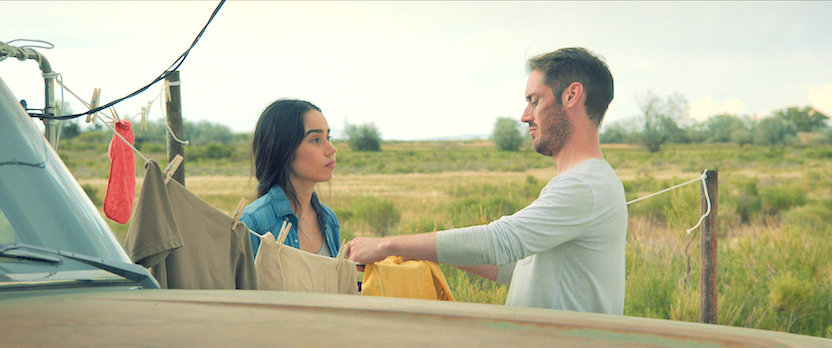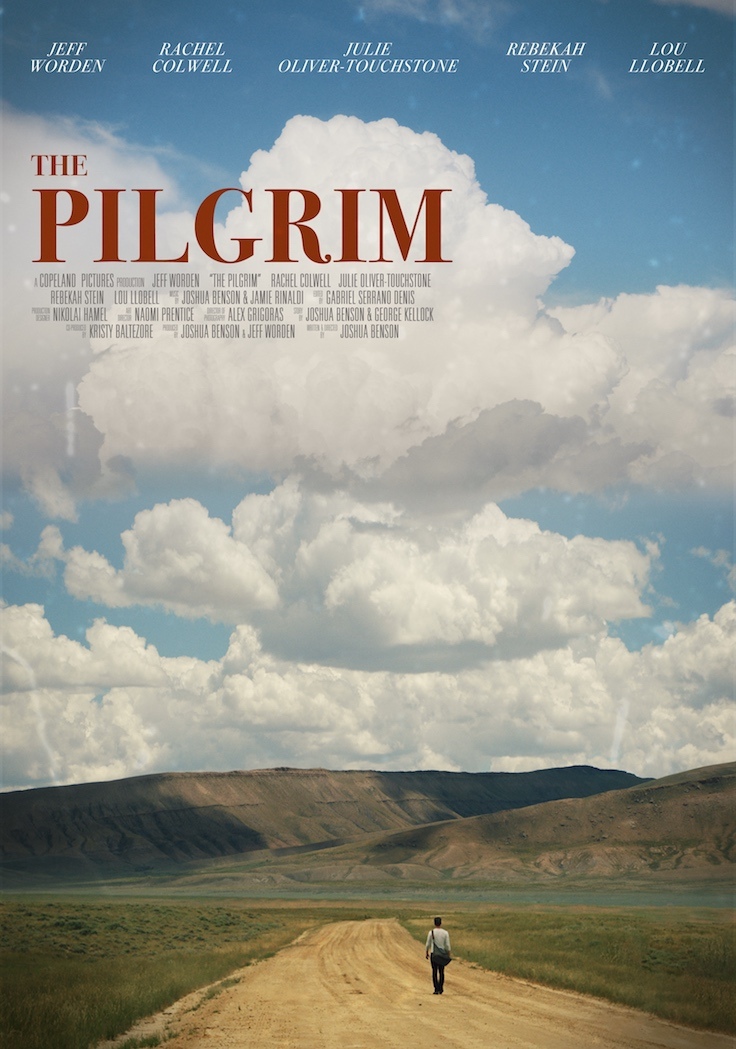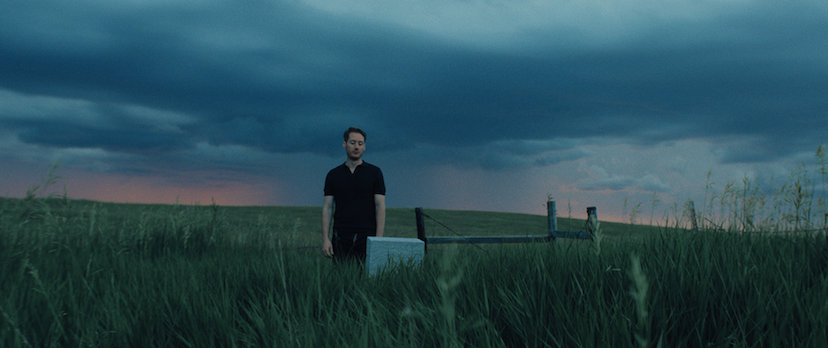
My older brother was the theatre/drama enthusiast of the family. He was involved in every extracurricular you can imagine. A fax was sent to our high school for a nation-wide open casting call. The search was for the ensemble cast of a new high-school drama TV series. And it was posted outside our high school’s drama studio. My brother attended the workshop leading up to the audition, and came home afterwards telling us about his experience.
For some reason a few days later, at his insistence, I finally decided to call the casting director. And sure enough she offered me an audition, though the deadline had passed. I was a 12-year-old and it was a big deal to take the train downtown. I remember how fancy and exciting it all was. Each time I auditioned I thought it was the last time. Call back after call back I thought it was over. I guess looking back now we even did a chemistry read. Because I remember them comparing me to another actor in person, commenting on our ability to play siblings.
I booked that show and went on to do 5 seasons of it all throughout high school. It was a formative and life-altering experience. For the first time, I felt adults treat me as if I had something of value to offer the world. And it was fun–every step of it was thrilling. Making tv and movies really is magic, addictive and intoxicating magic. I grew up in a low income family, in a low income area. As a native person in Canada, it’s hard to describe. But, before acting, I didn’t have a lot of messaging directed at me.
Watch Official Trailer for The Pilgrim directed by Joshua Benson
It’s not something I recognized at the time until it was gone because then when the series was over, I knew I needed to do anything to get that hope back in my life. I’ve studied, auditioned, side-gigged, and hustled like crazy to get to do this for a living and nothing happens overnight, but every job changes your life in some way and that’s pretty remarkable. There aren’t too many jobs I’m aware of that offer you that kind of virtually limitless potential.
One audition and you can end up on the other side of the world, in strange clothing, forward or backward in time, surrounded by new friends, making art and drinking coffee at 2 am on the joy ride of your life. Try as I might, I can’t stop playing that slot machine.
indieactivity: What acting technique do you use?
Rachel Colwell (RC): I truly can’t stand listening to actors describe their craft. It bores me into a coma. Please don’t make me do it.
How did you get connected to the project? Did you have to audition? If you did, would you still have got the part?
Rachel Colwell (RC): I believe I came to the project on the recommendation of a friend who was offered the part first and was unavailable. I think they may have viewed my demo reel and offered it to me from there. If I auditioned I probably would not have gotten it, things can go so many ways in an audition for so many different reasons, I think they just took a leap of faith on me.

Let’s take this project you did; how did you prepare for such a role: the cast, the physicality, the terrain, the climate, weather and the demands of the project?
Rachel Colwell (RC): As I remember, there was less on the page than we did in real life. This project was about exploration and discovery, which is the gift you are given in single-auteur-style indie films. Taking your time, interacting with the camera, just trying things, fleshing things out as you go, adjusting where necessary, it was a collaborative and highly creative process. It was a rewarding process artistically, with the stunning backdrop of Wyoming.
How do you create the character from a script into a person?
Rachel Colwell (RC): You just try to relate to them on an emotional level. Every person has their hardships, their pain, their history, the things that are important to them, the people they love. You try to anchor on to those things, sometimes you have to make them up yourself and then it informs who they are as people. Once you know what a character wants, you get to play around with their tactic for obtaining it.
What part of the story challenged you when you read it? What drove you to get on the project?
Rachel Colwell (RC): The small town nature of the character I was playing was a challenge I was eager to explore. It’s fun and interesting to see yourself pared down to the natural elements. I’m used to arriving on set after multiple costume fittings, tailoring, an hour or two of hair and makeup, each insecurity or imperfection carefully smoothed and concealed, a couple of warm hours in a cozy trailer, a couple of laps around the catering truck, adequately coffeed and watered. It interested me to go to Wyoming and just do things in a more simplified way.

Explain one creative choice you took on the set of this production?
Rachel Colwell (RC): We did a scene at a clothes-line between Jeff’s character and mine. We did many takes, where we were saying what was on the page and Josh just wasn’t getting what he needed emotionally from the characters. It was collaborative, we all listened and talked. There was a gravity missing. I think our camera operator asked me what I wanted to say to Jeff’s character, and I said: “I hope my son doesn’t hate me”. I’m listening to him lament about his hatred for his mother and it makes me hope my own son doesn’t hate me for being an absent parent. In that moment, it demystifies his mother for an instant–that she might just be a woman who made mistakes but who’s strength of character has its limitations. It’s too much for Jeff’s character to think about and serves as the catalyst for him to bolt the next morning. That bit was improvised.
You’re not new to indie films. What do you enjoy about the work that keeps you working?
RC: I actually am new to indie films, but I hope to keep doing them! They’re where you get to try and do cool stuff, or play roles you might not normally.
Give an example of a direction you received from the director during the production?
RC: Josh offered a lot of guidance on taking your time, slowing things down, allowing the moments to settle on film, taking in the surroundings, just being and feeling. He really allowed the backdrop of the Wyoming wilderness to inform the pace of the scenes.
How did you collaborate with your cast members from scene to scene?
RC: I worked primarily with Jeff Worden and he was incredibly collaborative, conducts himself with grace and humility, he’s an excellent scene partner, I don’t remember any specific examples but he’s a great team player.
As the main cast in the film, describe the feeling of responsibility that you shouldered. Were you scared? Or did it fire you up? What scenes were difficult to shoot?
RC: Many of the scenes were physically or logistically difficult to film just due to the location. We were in extremely rural Wyoming, exposed to the elements, in some cases corralling a gang of wild buffalo, or battling constant attack of hungry swarms of mosquitoes. I remember sheltering in a car until a dust storm cloud passed. You don’t really get a sense of it from the film, but it was not without its physical challenges.
What did you take away from the film production?
RC: I took away from this film production the value in experimentation and the sheer gratitude of working on passion projects. It’s nice to have a variety in your career, keep things interesting, and don’t get stagnant.
What do you like most about the director, and his/her collaboration with his/her team?
RC: I like Joshua Benson’s passion for the art of cinema, it’s infectious. He will do anything to get a shot, or to make sure something looks stunning and cool.
What is next for you?
RC: I’m on the final season of Nancy Drew on CW that is set to air soon and pop in here and there on Resident Alien. Next I’d like to do a film. I’m ready to work intensively on a project for a number of months, the further away the better, just looking for the right project!
What advice do you give actors regarding what you learnt on the project?
RC: When filming rurally, don’t commit wardrobe to film before you’ve mosquito tested it at night. Continuity is never your friend on location.
Tell us what you think of the interview with “Writer-Director-Producer”. What do you think of it? What ideas did you get? Do you have any suggestions? Or did it help you? Let’s have your comments below and/or on Facebook, Instagram, or Twitter.
Rachel Colwell Socials
IMDb
Instagram
MORE STORIES FOR YOU
Richard Green Documentary, ‘I Know Catherine, The Log Lady’: Premiere in NYC, LA May 9th
Lynchian Doc I Know Catherine, The Log Lady Makes Hollywood Premiere 4/17, Rollout to Follow
In Camera by Naqqash Khlalid Launch on VOD April 29
Naqqash Khlalid’s Directs Nabhan Rizwan. In Camera stars an EE BAFTA Rising Star Award Nominee.
2025 Philip K. Dick Sci-Fi Film Festival Award Winners Announced
Vanessa Ly’s Memories of the Future Awarded Best PKD Feature
Dreaming of You by Jack McCafferty Debuts VOD & DVD for April Release
Freestyle Acquires “Dreaming of You” for April 15th Release
Hello Stranger by Paul Raschid set for London Games Festival & BIFFF
The film Is set for an April 10th Premiere at The Genesis Cinema in London (LGF) and BIFFF
Daydreamers Official Trailer by Timothy Linh Bui: Released by Dark Star Pictures
Daydreamers Vietnamese Vampire Thriller – May 2nd release









